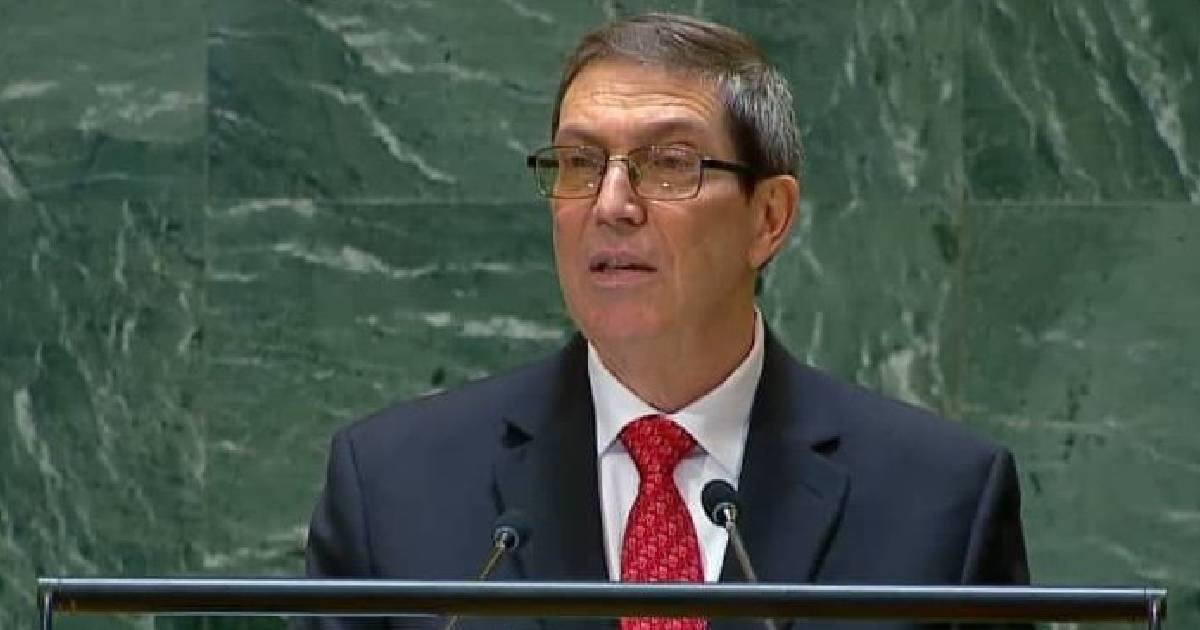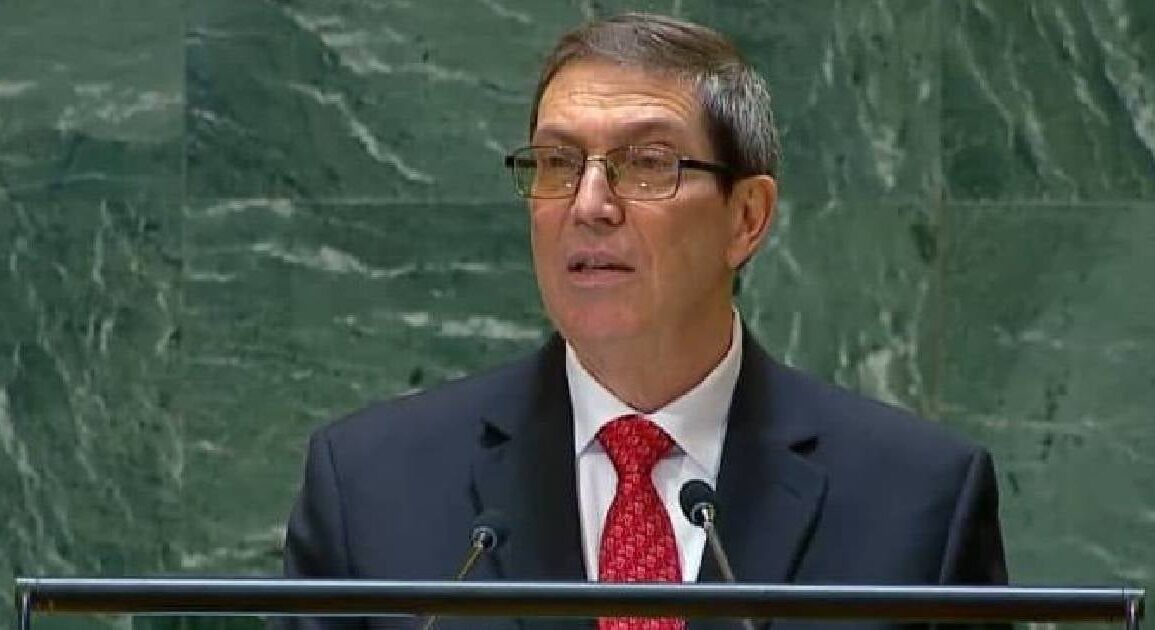
Mientras el canciller cubano Bruno Rodríguez denounces from his official account on X the conditions of Cuban migrants in detention centers in the United States, thousands of prisoners inside Cuba continue to suffer from torture, medical negligence, and inhumane conditions in the regime’s prisons.
“The anti-Cuban politicians of South Florida seek to distance themselves from the terrible conditions of migrants in detention centers. They divert attention from their responsibility in the anti-immigrant policies of the #US government that affect Cuban families”, wrote Rodríguez.
The contrast between his message and the reality on the island has sparked outrage. Activists, journalists, and relatives of prisoners report that while the government attempts to clean up its image before international organizations like the UN, repression and neglect are commonplace in Cuban prisons.
“Respect” at the UN, torture in prisons
Last Friday, Cuba’s diplomatic mission to the United Nations stated on X that the island presented “best practices” in the treatment of individuals deprived of liberty during the anniversary of the Mandela Rules. The government boasted of ensuring “human dignity, social reintegration, access to education, work, and culture” in its correctional facilities.
But the response from both inside and outside the country was immediate.
“An absolute and total lack of respect”, remarked journalist José Raúl Gallego regarding the official intervention. “Let it be said by the political prisoners, the family members of the prisoners, or anyone who has been through a prison in Cuba”.
The Mandela Rules, adopted by the UN, demand respectful treatment of inmates: no torture, access to medical care, family visits, legal representation, and no discrimination. However, the Cuban reality systematically violates these rules.
Between 2022 and 2024, at least 56 people died in custody in Cuba, according to the non-governmental organization Cubalex. Many due to lack of medical attention or institutional violence. In 2024, the Cuban Observatory of Human Rights reported over 40 similar deaths in prisons on the island.
Cases like that of Inoel Rodríguez, brutally beaten by guards in the Ariza prison, or Jorge Luis Torres Vaillant, who died of malnutrition in Santiago de Cuba, demonstrate a pattern of abuse, neglect, and torture that contradicts all official discourse.
Meanwhile, a SOS from the U.S.
Rodríguez took the opportunity to tweet about the news from early June, which reported that Cuban immigrants detained at the Krome processing center in Florida formed a SOS with their bodies and t-shirts, along with the words “Cuba” and “Free,” as a desperate cry in response to the conditions they are facing.
The facility houses over 1,700 people in a space designed for 600, as reported by Thomas Kennedy from the Florida Immigrant Coalition. Cells meant for 12 individuals are occupied by as many as 40.
Although ICE claims to guarantee “safe and humane” conditions, a report from the Miami Herald revealed four deaths under custody in Florida between December and April. Among the deceased was a Ukrainian immigrant who suffered a stroke without receiving timely assistance, and a young Honduran who was incorrectly medicated and died due to poorly managed psychiatric complications.
The congresswoman Debbie Wasserman Schultz visited the center and described it as inhumane and overcrowded, with detainees who do not even have criminal records or have received due legal process.
The Double Standards of Havana
The narrative of the Cuban regime, which today expresses concern for its nationals detained in the U.S., starkly contrasts with the neglect it imposes on Cubans within its own borders.
While government entities denounce Washington’s “anti-immigrant” policies, they remain silent about the inhumane policies enforced in their prisons. They speak of “dignity” in international forums, yet punish those with differing opinions with hunger, confinement, and death.
The cry of “SOS Cuba Libre” that echoed from Krome not only calls out to U.S. authorities. It also protests against a system that punishes freedom within the island and uses the suffering of its migrants as a political weapon outside of it.
Frequently Asked Questions about the Situation of Human Rights and Migration in Cuba
What is the situation of human rights in Cuban prisons?
The situation of human rights in Cuban prisons is critical. Prisoners suffer from torture, medical negligence, and inhumane conditions. Reports from organizations such as Cubalex have documented at least 56 deaths in custody between 2022 and 2024, many of which were caused by a lack of medical attention and institutional violence. These issues persist despite the Cuban regime’s claims in international forums that it respects human dignity in its prisons.
How does the Cuban regime handle emigration and the relationship with Cubans in the U.S.?
The Cuban regime uses emigration as a political tool. While denouncing the deportation policies of the U.S., it ignores the internal causes that drive the massive exodus. Instead of acknowledging the repression and economic crisis that push Cubans to leave the island, the government blames the U.S. embargo and external factors. Additionally, it seeks to maintain the relationship with the Cuban diaspora in the U.S. to ensure the flow of remittances, which are vital for the Cuban economy.
What contradictions exist in the Cuban government’s discourse on human rights?
The Cuban government’s discourse on human rights is contradictory. While it claims to respect human rights in international forums, in practice, it systematically violates those principles. Cuban prisons do not comply with the UN Mandela Rules, which promote dignified treatment for inmates. Moreover, the regime criticizes the repression of protests in other countries while violently repressing demonstrations and dissent within Cuba.
How has the Cuban regime responded to international criticism regarding the conditions in its prisons?
The Cuban regime has responded to international criticisms by claiming that it respects human dignity in its detention centers, but the allegations of torture, medical negligence, and poor conditions in Cuban prisons contradict those claims. The international community has expressed its outrage and is calling for improvements in prison conditions, but the Cuban government continues to deny these systematic violations.
This post was originally published on this site be sure to check out more of their content.









